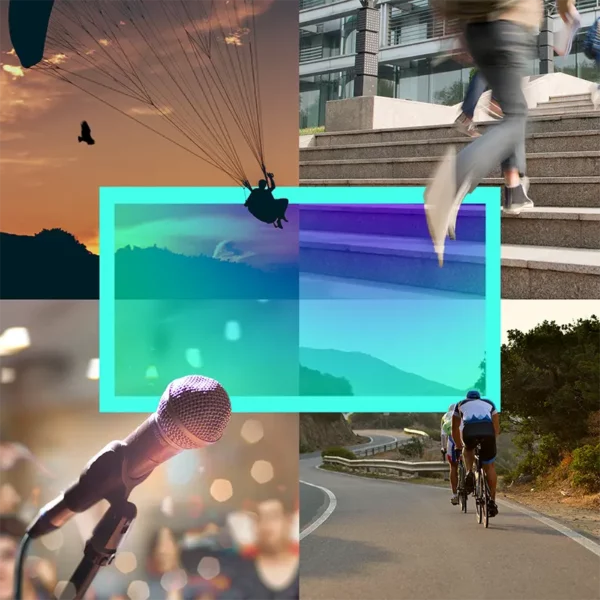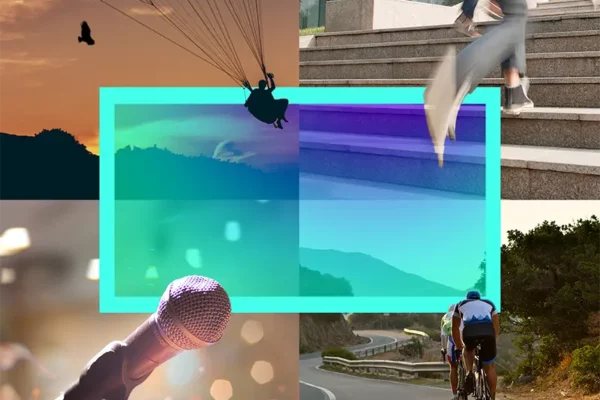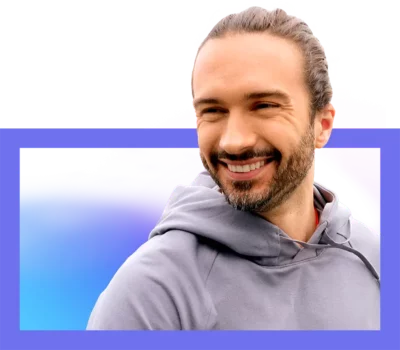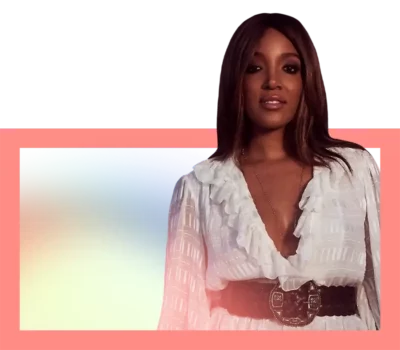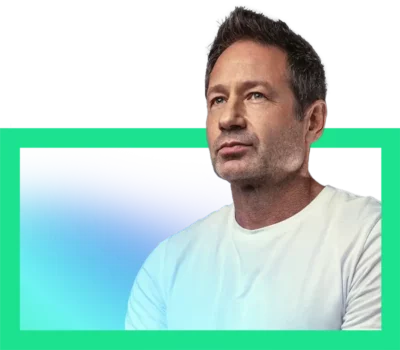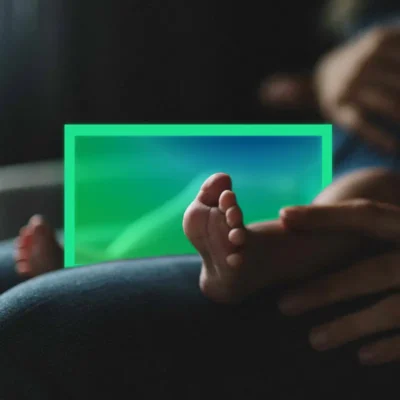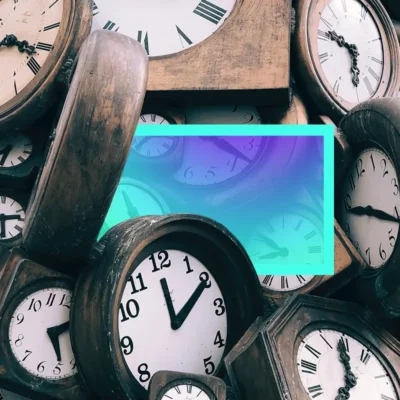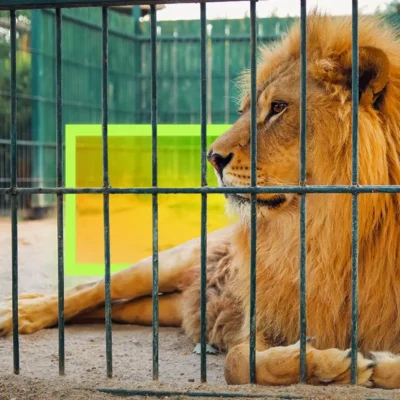ROHAN GUNATILLAKE: Hi everyone, it’s Rohan. This week, our team at Meditative Story has put together something really special. We’re revisiting memorable episodes from our catalog to explore the concept of wake-up calls. No, we’re not talking about the kind of wake-up call you may get at a hotel, though those can sometimes be life savers.
We’re interested in those moments when, for one reason or another, it becomes abundantly clear that everything you’ve been doing in your life up until that point just isn’t working. Throughout this episode, you’ll hear clips from some of our favorite storytellers describing their own wake-up moments, when the universe showed them a entirely new perspective on the world they could not ignore, and life was never the same again.
We’ll provide links to the full stories in our show notes so you can explore each in its entirety.
We’ll begin with actor David Duchovny, whose wake-up call comes when things seem to be going well. He’s a good student in high school and, after graduation, he pursues the life of an academic. But an unplanned diversion which lands David in an acting class wakes him up, changing how he expresses his emotions and ultimately how he sees the world.
The body relaxed. The body breathing. Your senses open. Your mind open. Meeting the world.
DAVID DUCHOVNY: I graduate from Princeton, and go on to grad school at Yale, where I work toward a PhD. in literature. But I need to make $3,000 this summer. I set out to get a bartending job when a friend of mine, an actor, says, “You know, if you book a commercial, you can make that much money in one day.”
Now that sounds good to me. So I’m like, “I’m in. How do I do that?”
He introduces me to his agent, who agrees to send me out for commercial auditions. But if I want any theatrical auditions, she says, I’ll need to take classes.
Acting class is a revelation for me. They ask us to do things I’ve spent my whole life trying not to do. Crying. Yelling. Being loud. Losing control of my emotions. Not following rules. They want all that here. And there’s no repercussions like in the real world. No one cries if I yell, no one dies if I act the fool.
In one exercise we drink an imaginary cup of coffee. For months. I feel the shape of the mug in my hands, the weight of it. I grasp the handle, and ah, there’s the heat. I can feel the heat. I smell the rich, smoky aroma of the coffee, taste it on my lips. I spend hours doing this. My Latin is pretty good, but this is all Greek to me.
Acting forces me to use all of myself — not just my mind. My body, my heart. And I love it like I love basketball and baseball. It’s not curing cancer. But it feels important. It feels good to me.
I start to realize how much energy I’ve spent keeping busy — trying to move faster than my feelings. But here they want me to slow down, to feel everything. They demand it. And I can see now how my previous academic success was also somehow performative. Posturing. But now I’m inhabiting a different, more primal — maybe even more authentic — part of myself.
And so I make the call, kind of. I subtly abandon my doctoral thesis without telling anyone. And I decide to become an actor. Without telling anyone. Whatever that means to a 26-year old grad student.
GUNATILLAKE: Acting class is a revelation for me. It’s amazing how these life-altering moments have a way of surprising us, and it’s a good reminder that we should always be open to new experiences.
Ginger Zee, the chief meteorologist for ABC News, is used to throwing herself into new and unfamiliar situations when chasing storms all over the world. Her wake-up call comes when, on a work assignment in Nepal, extreme circumstances cause her to reckon with the storm she has carried inside her, throughout her lifelong struggle with depression.
GINGER ZEE: Seven months later, I stand on the edge of a mountain cliff in the Himalayas, near Pokhara, Nepal. I’m here to paraglide alongside a vulture for a story on endangered wildlife.
Where I’m standing, the ground is plush, green, grassy. I’m surrounded by an endless series of jagged snow-capped peaks. Eight thousand feet below is a huge, still lake. The mountains reflect off that surface, making the towering Himalayas seem twice as vast. The view is otherworldly.
As I lace up my hiking boots, I notice that the vulture’s handler is in flip flops. I’m more interested in his shoe-wear than what I’m about to do. Like, shouldn’t I be nervous?
Behind me I hear one of the producers say, “It’s time, let’s go!” I take a running start toward the edge, and I jump. And now I’m in free-fall. My stomach sinks. I love it. My body contracts. I drop 50 feet before the wind grabs me.
And now, nature takes over. The thermals catch hold of me and I coast. From chaos to peace in an instant.
In becoming a meteorologist, I studied these winds, these thermals. I know how they work, but I’ve never flown them before. I witnessed tornadoes, but I hadn’t been inside one. Today, I’m not just observing the winds, I’m riding them. I’m not simply reporting on vultures, I’m flying with one.
As I soar through the valley, I allow myself to feel all that chaotic, inner weather that I’ve pushed away — to be part of it, and it’s an epiphany.
That tornado inside me, it means that I’m alive. Despite the pain I have felt, the chaos in my life, I so badly want to live. I’m suddenly no longer afraid of my inner storm.
The vulture swoops in from his handler behind me and lands on my outstretched arm. I feed him raw meat from my hand. I look down at the beautiful lake. I see every ripple. I see the cows in the narrow alleys of Pokhara, and the sticks in the hands of the boys who lead them. I see the cameraman waiting to film my landing, crowds of curious children on the strip of dirt I’ll come down on. All of it teeming with life.
The handler signals to me that it’s time. As we land on the airstrip, the children I saw from the sky surround us, come in and hug us — warmly, with so much feeling.
My impulse has always been to jump, whether from the top of the stairs or a mountain. It’s just who I am. The difference now is that I want to jump into my life rather than escape from it.
Now I live by a simple rule: storms don’t last forever. They can’t, and they won’t. It’s not how weather works, and it’s not how life works.
GUNATILLAKE: All storms will pass. Sometimes it takes an extreme experience to show us these simple truths.
For Grammy-nominated country singer Mickey Guyton, however, the truth only becomes visible when a trusted loved one helps her open her eyes. Growing up Black in rural Texas, Mickey lived in a kind of cultural limbo, never feeling like she fit in with white audiences or Black audiences. While struggling to find her voice in the competitive Nashville music scene, she comes to a realization about who she is and finds her path to authenticity.
MICKEY GUYTON: So here I am in Nashville. Grown-up, out of the house, pursuing a career in country music. Nashville has a system. There’s a way they do things. So I use the producers they tell me to use. And the musicians, and the writers, too. I do everything they tell me to. And nothing works.
Something is missing. I have a unique story, and yet here I’m trying to look and sound like every other artist that’s making country music. Trying to fit in, trying to act the part to be noticed. It can’t work. It just isn’t me.
My husband is a lawyer, and we have an agreement: He doesn’t tell me what to do with my career; I don’t tell him what to do with his. Every now and again he tries to make small suggestions, and I’m like, “Babe, you don’t know the industry, I got this.”
One evening we sit in a cool bar in downtown LA, a table set apart from the crowd in a little loft space. We hear the sounds of wine glasses clinking, celebrating achievements and goals. Eager patrons try to grab the attention of the bartender to order their drink. But it’s all just background noise. Grant and I are locked into a serious conversation, not caring about what surrounds us.
I decide to ask him, point blank: “Why do you think country music isn’t working out for me?” I’ve never asked him this question. Never.
He replies, “Because you’re running from everything that makes you different. You’re a country singer who can also be on R&B stations. You can be at the Essence Festival. You can be at Black Girls Rock. And you can equally be in the country music world because you are country. You need to sing songs that are true to you, not to everybody else.”
I’m floored by this. Because I instantly know he’s right.
Until now I’ve spent my whole life just trying to kind of fit in, always trying to be everything to everybody else.
When I was 6, when my mother put that old dresser in front of the doorway, I could easily have climbed out of the room. But I didn’t take the risk. I was afraid. It’s been the same with my own music. I’ve hindered myself so many times, in so many ways, from actually flying because of my own fear. But now I make the music that is the truest to me.
Don’t get me wrong, I still do a lot of listening. But now, I embrace everything that makes me different. It’s allowed me to find my voice, and I show others how to listen to me and hear it. I have my choir all around me: my manager, my label, the producers, my husband. Even my mom. And I teach them how to harmonize with me. They trust my instincts. And together, well, ain’t that just a beautiful sound.
GUNATILLAKE: Listening to others who know us best can unlock insights we need to move forward. Sometimes, however, wake up calls come from taking the time to listen to ourselves.
Joe Wicks, a renowned fitness coach and popular social media personality, had a tumultuous childhood where he saw his parents struggle with addiction and mental health challenges. As a young adult, he continues to feel lost. It’s on a 2,000 mile bike trip along the western coast of the United States where he finds space to process the things he’s been through, and channel his energy into his life’s purpose.
JOE WICKS: Riding down to Southern California, the grasses are brown and dry along the roadside. My cheerleader voice echoes loudly in my head. I’ve always had this voice — my inner coach. It says, “Don’t give up. Keep going. You’ll get through this.” This has been my mantra since I was known as the poor kid that no one expected anything from. The voice reminded me: “You’re just struggling a bit, and you’re gonna get through this time, and things will get easier. Your relationships with your mum, your dad, they will all change.”
With the sun on my skin, and my body feeling strong from weeks on the bike, I feel content. I think about my family and our road to finding happiness. The healing we’ve had to process goes back generations.
My dad’s dad ran away with another woman and left my dad as a young boy. My mum’s dad abandoned her when she was a baby, and she spent two years in a foster home. This lack of love caused so much pain that they masked in different ways.
My relationship with my parents is on the mend, different from when I was a kid. My mum and dad are both in better places. Dad has been clean for years. I realize what he needed was connection and love. We’ve had so many conversations about it over time, and I feel grateful we understand each other better now.
I’ve found my rhythm on the bike, but as we’re closing down on the miles we have left, I know I can’t ride forever. At some point, even if I bike all the way down to Argentina, the road will end.
It’s coming close to the final stages of our trip. I will have to return home. I will have to face my girlfriend, and I know I need to break up with her. And I have to find something to channel my energy into.
As we ride through San Diego to the Mexican border, these thoughts that I’ve mulled over for 2,000 miles crystallize. I thought the answer was to run away from everything and detach from everyone, but I like being attached to others. I want connections. I want to have a purpose. I can’t run forever.
For the first time that I can remember, I know what I want to do next. I’ll get a personal training qualification. I’ll start a boot camp. I’ll help people unlock their potential through exercise, through moving their body the way I do to work through things. I’ll help them become better versions of themselves.
It’s 5:45 a.m. in the morning, and it’s still dark out. I pedal my bike through the London suburb, and even though I have a little trailer hitched to the back loaded with kettlebells, pads, and skipping ropes, the journey feels easy. Only 4 miles to the park.
When I get there, I set up all the gear. I do some light stretches while I wait. Will anyone show up to my bootcamp class today? Did anyone see the flyers I posted around town advertising this workout? If no one comes this morning, it won’t be the first time — happens a lot. But I don’t feel discouraged. I don’t even feel anxious.
For the first time, I’m deeply content. I’m here to help whoever turns up tap into their own potential through exercise. Helping people feel energized and empowered is my purpose. And I run towards it.
GUNATILLAKE: Since those early days in the park, Joe’s contagious energy has had a huge impact on millions of people. Thank you, Joe. It was great to hear that again.
So here’s the thing about wake up calls: If we’ve had them, it’s really worth remembering them, staying in touch with their energy, so they can continue to have their effect. And if a wake up call is on its way, we actually don’t know that. But what we can do is be open — open and ready to receive.
So with that, thank you David, Ginger, Mickey, and Joe. And thank you for revisiting these moments with us.
If you’d like to share your stories of wake-up call moments, we’d love to hear them. You can find us on all your social media platforms through our handle @meditativestory. Or you can email us at: [email protected].
